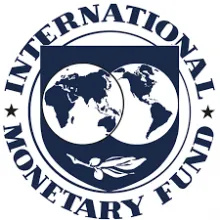The International Monetary Fund (IMF) is an organization of 189 countries working to foster global monetary cooperation, secure financial stability, facilitate international trade, promote high employment and sustainable economic growth, and reduce poverty around the world.
Created in 1945, the IMF is governed by and accountable to the 189 countries that make up its near-global membership.
Priorities as a partner of the Global Partnership for Sustainable Development Data
The International Monetary Fund (IMF) commits to helping 112 (mostly lower-income) countries to introduce the systematic publication of key macroeconomic indicators. These are the countries that participate in the IMF’s General Data Dissemination System (GDDS).
The preliminary goal for 2020 is for at least 50 of these countries to publish their data through a National Summary Data Page and in accordance with a published advance release calendar. The Fund, in collaboration with the African Development Bank and other regional development banks, would support this implementation through technical assistance and/or funding to cover the cost of the technology, whilst countries would deploy the necessary human resources and inter‑agency collaboration.
